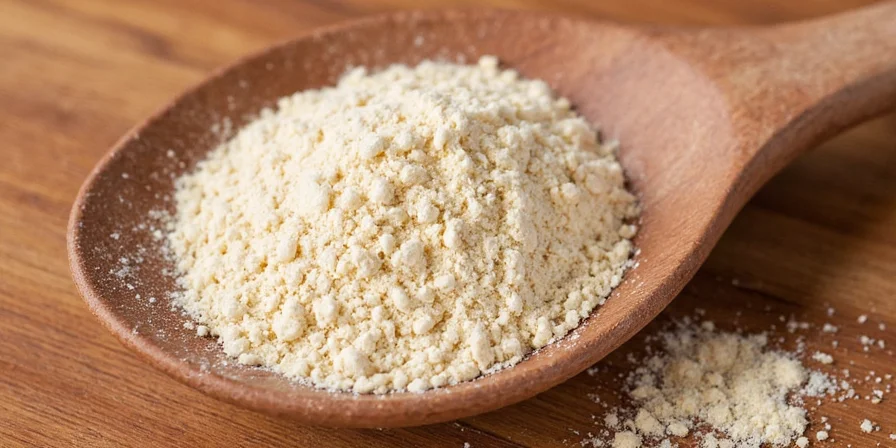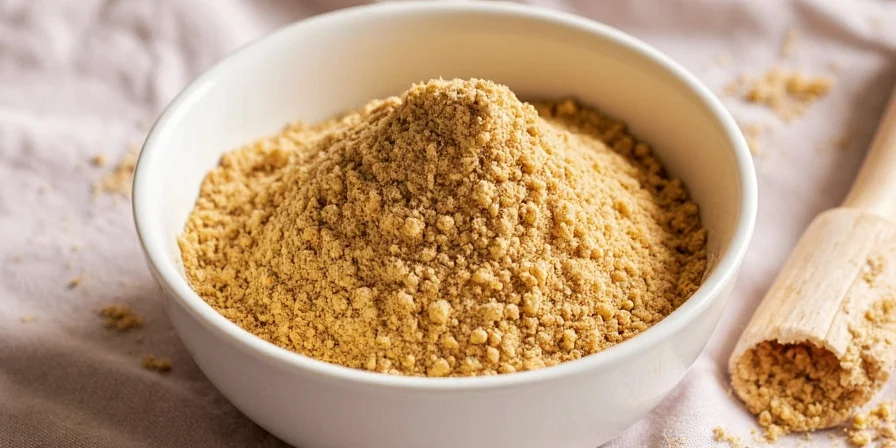Unlocking the Flavor of Onion Powder: A Culinary Guide for the Curious Chef

Have you ever wondered how to transform a simple dish into a gourmet masterpiece with just a pinch of something magical? Meet onion powder — a humble spice that can elevate your cooking from good to unforgettable. Whether you're a seasoned chef or a curious home cook, understanding how to store and use onion powder can make all the difference in your culinary journey. In this blog, we’ll dive into the world of onion powder, explore its history, and share some life-changing storage and usage hacks. Plus, we’ll answer the burning question: How much onion powder equals one onion? Let’s get into it!
The Magic Behind Onion Powder
Onion powder is made by dehydrating finely chopped onions until all moisture is removed, leaving behind a concentrated, flavorful powder. This process preserves the natural compounds that give onions their distinct taste and aroma, making onion powder a versatile and long-lasting ingredient.
Unlike fresh onions, which have a short shelf life, onion powder can last for months or even years when stored properly. This makes it a favorite in many professional kitchens and a staple in any well-stocked pantry.
Why Use Onion Powder?
- It adds a deep, savory flavor without the bulk of fresh onions
- It’s easy to measure and use in precise amounts
- It enhances the flavor of soups, stews, sauces, and marinades
- It’s a great substitute for fresh onions in recipes where you need a more intense flavor
- It’s perfect for people with dietary restrictions, such as those avoiding raw vegetables
Onion Powder vs. Fresh Onion: A Flavor Comparison
If you're wondering how much onion powder you need to replace one onion, here's a quick breakdown:
| Ingredient | Amount | Flavor Intensity |
|---|---|---|
| Fresh Onion | 1 medium onion | Moderate |
| Onion Powder | 1 tablespoon | High |
As you can see, just one tablespoon of onion powder can deliver the same depth of flavor as a full onion. This makes it an excellent choice for recipes where you want to intensify the flavor without adding too much volume or moisture.
However, it's worth noting that the flavor of onion powder is more concentrated and can be overpowering if used in excess. Always start with a small amount and adjust to taste.
Storage Hacks: Keeping Your Onion Powder Fresh
Proper storage is key to preserving the flavor and potency of onion powder. Here are some expert tips to help you store your spice like a pro:
1. Keep It Dry and Cool
Moisture is the enemy of spices. To keep your onion powder from clumping and losing flavor, store it in a cool, dry place. Avoid storing it near the stove or in areas with high humidity, such as the bathroom or kitchen sink.
2. Use Airtight Containers
Transfer your onion powder to an airtight container to protect it from air, moisture, and odors. Glass jars with tight-fitting lids are ideal for this purpose. They also allow you to see the spice and check its quality at a glance.
3. Label and Date
To keep track of when you purchased your onion powder, label the container with the date. This helps you use it before it loses potency. Most spices, including onion powder, can stay fresh for up to 6 months when stored properly.
4. Avoid Light Exposure
Light can degrade the quality of spices over time. Store your onion powder in a dark place or use an opaque container to protect it from sunlight. This will help maintain its flavor and color for longer.
5. Keep It Away from Strong Smells
Onion powder can absorb strong odors from other spices or foods. Store it separately from items like garlic, cumin, or pepper to prevent it from taking on unwanted flavors.
Usage Hacks: How to Get the Most Flavor from Onion Powder
Now that you know how to store your onion powder, let’s talk about how to use it like a pro. Here are some expert tips to help you maximize its flavor and versatility:
1. Use It in Sauces and Soups
Onion powder is a fantastic addition to sauces, soups, and stews. It adds depth and umami without the need for fresh onions. Simply add a teaspoon to your pot and let it cook for a few minutes to release its full flavor.
2. Mix It into Marinades
Boost the flavor of your marinades by adding a pinch of onion powder. It works especially well with meats like chicken, beef, and pork. It adds a subtle sweetness and enhances the overall taste of your dish.
3. Use It in Baking
Did you know onion powder can be used in baking? It’s a great addition to savory baked goods like bread, muffins, and meat pies. It adds a rich flavor without overpowering the other ingredients.
4. Sprinkle It on Roasted Vegetables
For an extra kick of flavor, sprinkle some onion powder on your roasted vegetables. It pairs especially well with carrots, potatoes, and sweet potatoes. The result is a delicious, savory side dish that everyone will love.
5. Make Your Own Onion Powder at Home
Want to take your onion powder game to the next level? Try making your own at home. Simply chop fresh onions finely, spread them out on a baking sheet, and dehydrate them in the oven at a low temperature (around 150°F or 65°C) for several hours. Once fully dried, blend them into a fine powder and store in an airtight container.
Common Mistakes to Avoid
Even the best chefs can make mistakes when it comes to using and storing onion powder. Here are a few common pitfalls to avoid:
- Using too much: As we mentioned earlier, onion powder is very potent. A little goes a long way. Start with a small amount and adjust to taste.
- Storing it in the fridge: While it might seem like a good idea, storing onion powder in the fridge can cause it to absorb moisture and lose flavor. Always store it in a cool, dry place instead.
- Using expired spices: Over time, spices lose their potency and flavor. Always check the date on your container and use the spice before it becomes stale.
- Mixing it with wet ingredients too early: Onion powder is best added to dry ingredients before adding liquids. This helps it disperse evenly and release its full flavor.
Onion Powder in Global Cuisine: A Flavorful Journey
Onion powder isn’t just a Western kitchen staple — it’s used in cuisines around the world. Here’s a quick look at how different cultures incorporate onion powder into their cooking:
| Cuisine | Usage of Onion Powder |
|---|---|
| Indian | Used in spice blends like garam masala and in curries for depth of flavor. |
| Italian | Used in tomato-based sauces and meatballs for a savory kick. |
| Chinese | Used in stir-fries and dumpling fillings to enhance umami and flavor. |
| Middle Eastern | Used in spice mixes and meat dishes for a rich, savory flavor. |
As you can see, onion powder is a versatile ingredient that can be used in a wide variety of cuisines. Whether you're cooking up a storm in the kitchen or experimenting with new flavors, onion powder is a must-have in your spice collection.
Final Thoughts: Mastering the Art of Onion Powder
Now that you’ve learned the secrets of onion powder, it’s time to put your knowledge to the test. Whether you're using it in your favorite recipes or experimenting with new dishes, onion powder is a powerful tool that can transform your cooking.
Remember, the key to mastering any spice is understanding how to store and use it properly. With the right storage techniques and a few simple usage hacks, you can unlock the full potential of onion powder and take your cooking to the next level.
So go ahead — grab your onion powder, dust off your kitchen, and let your culinary creativity shine. The world of flavors is waiting for you!

Happy cooking!










 浙公网安备
33010002000092号
浙公网安备
33010002000092号 浙B2-20120091-4
浙B2-20120091-4